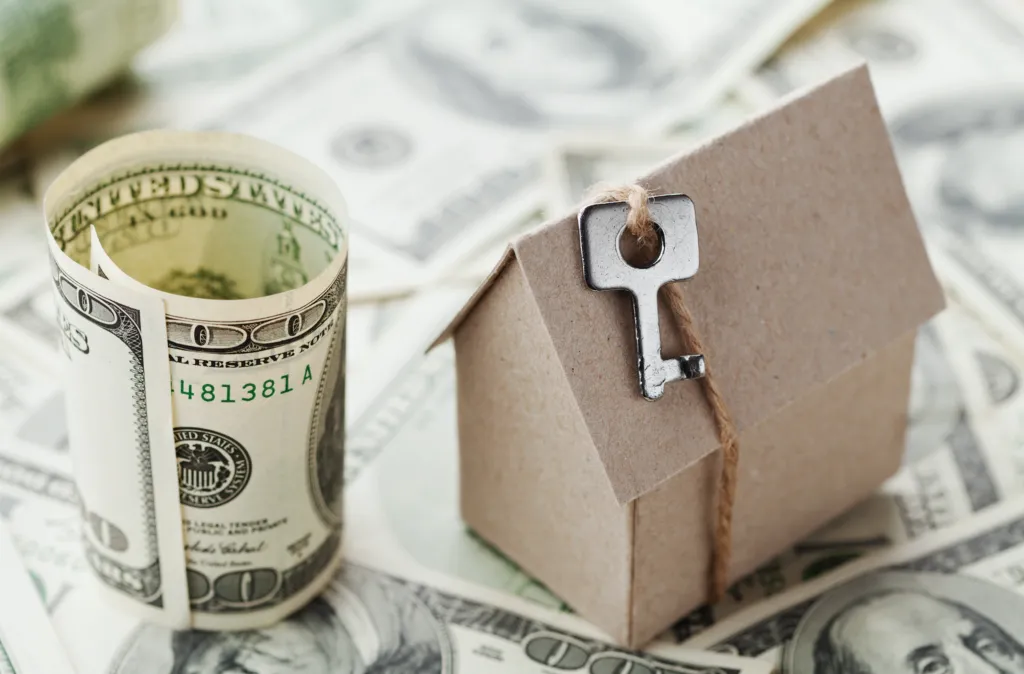Most people consider putting up a house as a great achievement; it turns out to be a financial nightmare if costs are not well contained. The secret here is to look at the process on how to save money when building a house reduces costs while at the same time not compromising on quality.

Nobody wants to spend more than they should when constructing a house; whether you are undertaking a new project or considering home improvements, saving money when building a house is key.
Giving a look at how it is possible to cut down on costs and also providing guidelines for efficient saving for a home construction.
8 Strategies on How to Save Money When Building a House
A home does not have to put a dent in your pocket to be built. Here are eight practical ways to keep costs under control:
1. Choose a Simple Design
It is indisputable that, for example, choosing a more traditional structural concept can greatly reduce expenses.
Second, large structures with detailed designs and shapes that are not standard add to the cost of both labor and the materials used. Avoid short or elongated shapes and use a rectangle or square for better effectiveness.
2. Use Cost-Effective Materials
Explore other construction materials that can be used in construction but which have better qualities, are long lasting, and are cheap. One is using recycled materials or prefabricated panels, or what is obtainable in the locality at proportional charges.
3. Hire a Reliable Contractor
Spend time and money to find a good contractor who has been able to work within the budget before. Let me therefore urge that through constant communication of expectations we avoid such costs.
4. Plan for Energy Efficiency
Hence, invest in energy-efficient designs and appliances. Though they may require more money at the start, they will make users save on utility costs in the future, which justifies their worth.
5. Buy Materials in Bulk
Every buyer knows that buying products in large quantities is cheaper since it attracts the offer of bulk buying. Consult with your contractor as to where and when you should procure the materials, and try to do it when your contractor has a sale or excess stock.
6. Avoid Changes During Construction
Any alteration in design or material during the construction phase procures further cost. He said that the last details of the implementation plan should be worked out before starting, and it should then be complied with for the expenses of the project not to rise unnecessarily.
7. DIY When Possible
Major projects should be done by experts since they cost more; in cases like painting, landscaping, or assembling furniture, you can do it yourself.
8. Build-in Phases
In case of a deficit of funds, it is advisable to build your house in sections, stages at a time. You should start small and then upgrade as your budget increases to make the process much easier financially.
What Is the Fastest Way to Save Money for a House?

I have reckoned that having discipline, a clear vision, and some strategies could swiftly save cash for a house. Here’s how you can speed up the process:
1. Develop a Savings Plan
State your goal, determine your monthly savings, and come up with a plan of action. This way, your savings will be regular, and you will not be tempted to spend the money.
2. Open a High-Yield Savings Account
High-yield savings accounts also give you a higher return on your money as compared to normal accounts. This not only helps your savings grow at a higher rate.
3. Cut Unnecessary Expenses
Look at your checklist of expenses and try to remove some of them. The overall small changes, including eating out less, no longer paying for unused subscriptions, and being wiser when shopping, make a difference.
4. Increase Your Income
Working extra jobs, doing freelance work, or getting a second job means you have a better chance of making more money and hence saving more. Other part-time jobs involve selling items that you have not used for a while or renting out the space in the house you currently live in.
5. Live Below Your Means
The best way to save money is to be economical, that is, learn to live a simple life. Live modestly by making sure that all more money goes to the house savings rather than putting it towards the many wants that exist in life.
6. Track Your Progress
Second, keep track of your savings to ensure it remains motivational for one and make some changes from time to time. Small successes help to stay on course and make you want to continue striving towards your objective.
How Long Does It Take to Save Enough Money to Buy a House?

How soon one is able to save enough cash to buy a house will depend on factors such as one’s income, expenses, and the cost of the house desired.
1. Saving for the Down Payment
A part of homeownership that invariably attracts a lot of attention is the down payment, which for most is five to ten percent, although it can average twenty percent.
- 10% Down Payment: So for a $300,000 house, you will need $30,000.
- 20% Down Payment: In other words, for the same home, $2000 of down payment would be 20% down payment of $60,000.
2. Time Required
The time it takes to save depends on your savings rate.
1. Moderate Savings Rate (10% of Income): Earning $50, 000 per annum and saving 10% would mean that it would take one 6 years to save $30,000.
2. Aggressive Savings Rate (20% or More): The number of years it takes to build your corpus reduces when you save more. For instance, translating 20% of $50,000, it takes only three years to save that amount.
3. Challenges in Saving: Alternatively, the Zillow 2023 report shows that the process of saving for a 20% down payment could take the average home buyer up to 11 years owing to forces of increasing home prices, inflation, and generally low wages.
Strategies for Managing Building Costs
When it comes to constructing your dream home, you ought to always monitor expenditure. Here’s how to manage expenses effectively:
1. Set a Realistic Budget: Draw up a clear, exhaustive schedule of expenses for a start. Factor in every cost you possibly can—acquisition of the lot, licenses, employees’ wages and materials, and contingency costs.
2. Research Contractors: Start with recommendations, obtain at least three bids, and inquire about the references provided. Select a contractor who can work well within the boundaries of your budget and time frame.
3. Monitor Spending: Try and check expenses from time to time to make sure they fall within the planned budget. Cost overruns should be addressed early enough to avert the escalation of larger problems.
4. Leverage Local Resources: Purchasing some of the raw materials and hiring workers from within can be cheap since transportation and procurement agents’ fees are cutoff.
5. Prioritize Needs: It will benefit from commencing with basic facilities at present and finding ways of incorporating impressive items at a later date.
6. Be Flexible with Materials: By avoiding expensive products such as those made from recycled products or avoiding customized fixtures to normal measurements, the cost can be slashed without necessarily having to sacrifice on quality.
Final Words
Constructing a house is a huge investment, meaning that some great thought has to be put into ensuring that one gets a quality house at the minimum cost possible.
With every click of a button to minimize construction costs to save for your home, it is a step closer to making that dream come true.
When you embrace the methods highlighted above, you will thus not only be financially wise when it comes to the purchase of a new home but also get value for your money as your journey to own a house proves to be smooth and fruitful.





